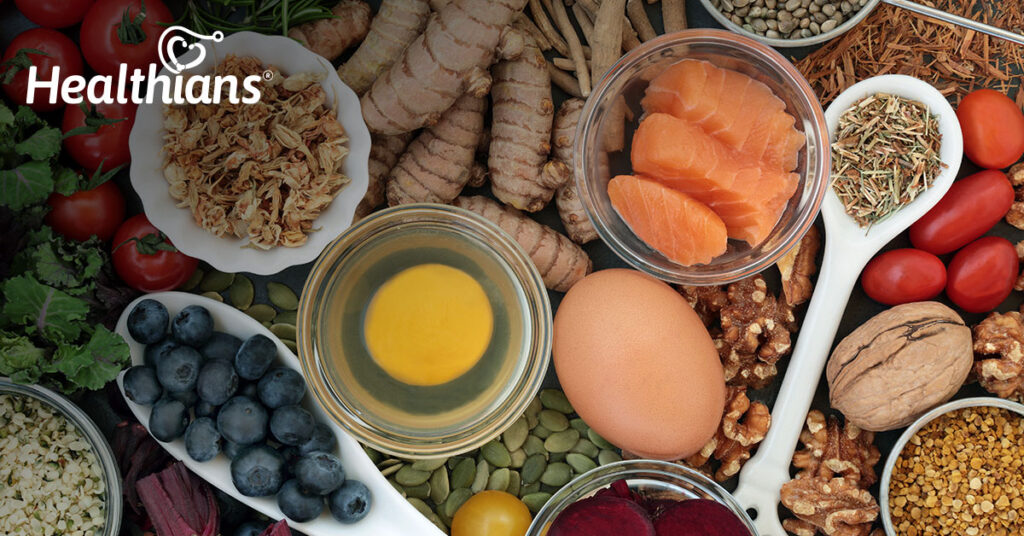Introduction
Did you know about 20 per cent to 80 per cent of women develop uterine fibroids by the time they reach age 50?
Uterine fibroids are non-cancerous growths in the uterus that affect a significant number of women. These growths can cause a range of symptoms, including heavy menstrual bleeding, pain during sex, and infertility. While there are several treatment options available for uterine fibroids, diet plays a crucial role in managing the condition.
Dietary changes can help reduce the size and symptoms of fibroids, as well as prevent their recurrence. In this blog post, we will discuss the best foods for uterine fibroids and explain why diet is important in treating this condition. We will also explore how certain foods can help balance hormones, reduce inflammation, and improve overall health, leading to a better quality of life for women with uterine fibroids. But first, let’s know what uterine fibroids are.
What are uterine fibroids?
Uterine fibroids are non-cancerous growths that develop in the muscular wall of the uterus. They are also known as leiomyomas or myomas. Uterine fibroids can vary in size, from as small as a seed to as large as a grapefruit or even larger. They can be single or multiple, and they may grow inside the uterus, on its outer surface, or within its wall.
These are very common, affecting up to 80% of women during their lifetime, although many women never experience any symptoms. Some women, however, may experience symptoms such as heavy or prolonged menstrual bleeding, pelvic pain or pressure, frequent urination, constipation, back pain, or pain during intercourse. In rare cases, fibroids can cause complications during pregnancy, such as preterm labour or delivery, or a risk of miscarriage or stillbirth.
The cause of uterine fibroids is not entirely understood, but they seem to be influenced by estrogen and progesterone hormones. They tend to grow and shrink in response to hormonal fluctuations, such as during the menstrual cycle or pregnancy. Treatment options for uterine fibroids depend on the size, location, and severity of symptoms, and may include medication, minimally invasive procedures, or surgery.
Foods that can prevent uterine fibroids:
Here are some foods that may help manage it:
High-fibre foods help in uterine fibroids
Foods high in fibre, such as whole grains, vegetables, and fruits, can help regulate hormones in the body and promote regular bowel movements. Consuming them regularly can help reduce the risk of developing fibroids.
Green leafy vegetables
Green leafy vegetables, such as spinach, kale, and collard greens, are high in vitamins and minerals that can help reduce inflammation in the body and promote overall health.
Foods rich in vitamin D
Studies suggest that low levels of vitamin D may be associated with an increased risk of developing uterine fibroids. Foods such as fatty fish, egg yolks, and fortified dairy products can help boost vitamin D levels in the body.
Foods rich in iron
Heavy bleeding during periods can cause anaemia in women with this condition. Foods such as lean meats, beans, lentils, and leafy greens can help boost iron levels in the body.
Foods rich in magnesium
Magnesium can help regulate hormone levels in the body and reduce inflammation. Foods such as nuts, seeds, legumes, and leafy greens are all good sources of magnesium.
Turmeric
Turmeric is a spice that contains curcumin, which has been shown to have anti-inflammatory properties. Adding turmeric to your diet may help reduce inflammation in the body and promote overall health.
It’s important to note that while a balanced diet can help manage symptoms associated with uterine fibroids, it is not a substitute for medical treatment. Women with uterine fibroids should speak with their healthcare provider to determine the best treatment plan for their individual needs.
Some foods that you should avoid if you have uterine fibroids
Diet plays an important role in managing any sort of medical condition. Here are some foods that you must strictly avoid if you are suffering from fibroids.
Red meat: Eating red meat frequently has been linked to a higher risk of developing fibroids.
Dairy products: High-fat dairy products, such as whole milk, cheese, and butter, contain high levels of estrogen, which can promote the growth of fibroids.
Soy products: Soy contains phytoestrogens, which mimic the effects of estrogen in the body and may worsen fibroid symptoms.
Alcohol: Drinking alcohol can raise estrogen levels in the body, which can contribute to the growth of fibroids.
Caffeine: Caffeine consumption has been associated with a higher risk of developing fibroids and may exacerbate fibroid symptoms.
Refined carbohydrates: Foods high in refined carbohydrates, such as white bread and pasta, can cause inflammation in the body, which can promote fibroid growth.
High-sugar foods: High-sugar meals as candy and soda, can cause insulin resistance, which can contribute to the growth of fibroids.
Final thoughts
A healthy diet is key to achieving real wealth, that is, health. Uterine fibroids are a common health issue among women, and adopting a healthy diet can play a significant role in managing the condition. Incorporating certain foods into your diet can help reduce inflammation and promote hormonal balance, which can help manage the symptoms of uterine fibroids.
However, it is important to consult with your healthcare provider before making any significant changes to your diet. You can also try the Herbal supplement HerbVed Fem-Up to promote healthy well-being.
Book The Full Body Good Health Test Today!
Written by: Anjali Sharma





